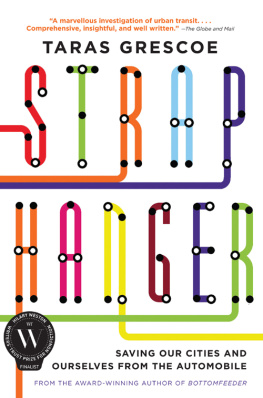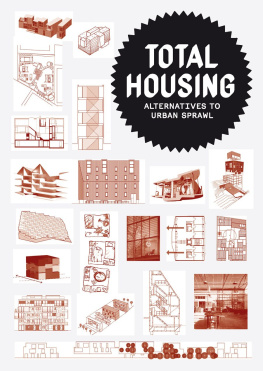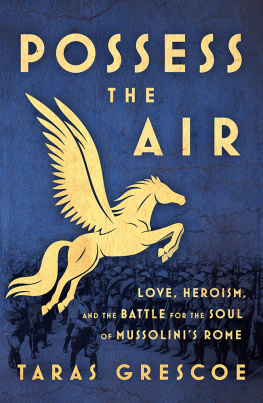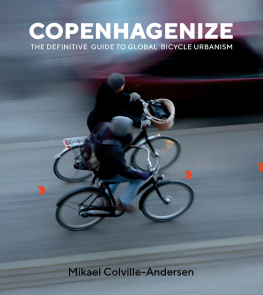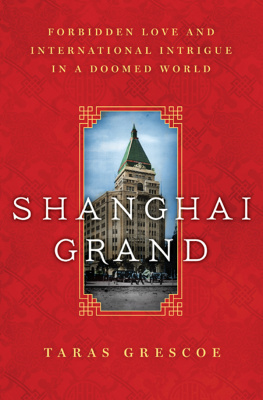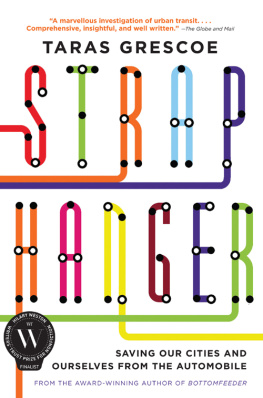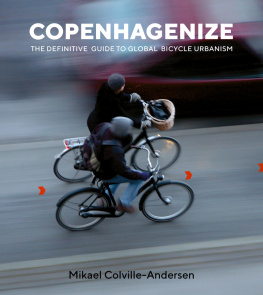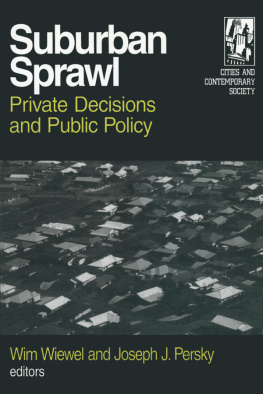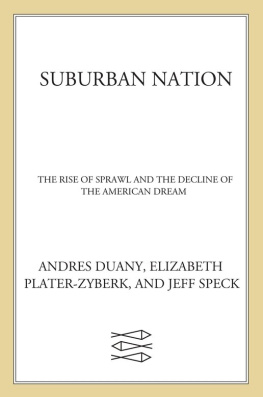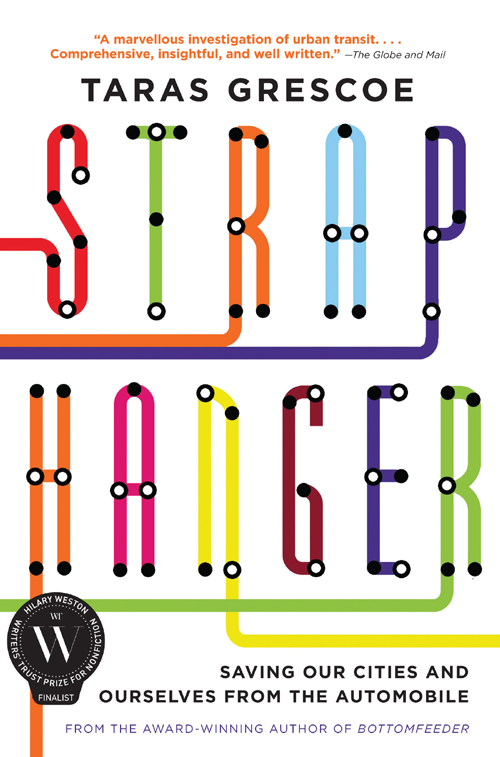
STRAPHANGER
Saving Our Cities and Ourselves from the Automobile
TARAS GRESCOE

To Desmond,
who arrived, unexpectedly, after his parents rode the 80 bus to the hospital for a routine ultrasound.
Introduction
Confessions of a Straphanger
Any man of forty who still rides the mtro is a loser.
Salvador Dal
A man who, beyond the age of twenty-six, finds himself on a bus can count himself as a failure.
Margaret Thatcher
I admit it: I ride the bus.
Whats more, I frequently find myself on subways, streetcars, light rail, metros, and high-speed trains. Though I have a drivers license, Ive never owned an automobile, and apart from the occasional car rental, Ive reached my mid-forties by relying on bicycles, my feet, and public transportation for my day-to-day travel. If you credit the U.K.s former prime minister Thatcher, that makes me a failure of almost two decades standing. Dal, who depended for locomotion on a fleet of chauffeur-driven Cadillacs, is kinder: according to him, Ive only been a loser for a couple of years. Far from being ashamed of my fare card, I consider it a badge of honor: Im a straphanger, and I intend to remain one as long as my legs will carry me to the corner bus stop.
Im not alone. Though there are 600 million cars on the planet, and counting, there are also seven billion people, which means that for the vast majority of us getting around involves taking buses, ferryboats, commuter trains, streetcars, and subways. In other words, traveling to work, school, or the market means being a straphanger: somebody who, by choice or necessity, relies on public transport, rather than a privately owned automobile.
Half the population of New York, Toronto, and London do not own cars. Public transport is how most of the people of Asia and Africa, the worlds most populous continents, travel. Every day, subway systems carry 155 million passengers, thirty-four times the number carried by all the worlds airplanes, and the global public transport market is now valued at $428 billion annually. A century and a half after the invention of the internal combustion engine, private car ownership is still an anomaly.
And yet public transportation, in many minds, is the opposite of glamoura squalid last resort for those with one too many impaired driving charges, too poor to afford insurance, or too decrepit to get behind the wheel of a car. In much of North America, they are right: taking transit is a depressing experience. Anybody who has waited far too long on a street corner for the privilege of boarding a lurching, overcrowded bus, or wrestled luggage onto subways and shuttles to get to a big city airport, knows that transit on this continent tends to be underfunded, ill-maintained, and ill-planned. Given the opportunity, who wouldnt drive? Hopping in a car almost always gets you to your destination more quickly.
It doesnt have to be like this. Done right, public transport can be faster, more comfortable, and cheaper than the private automobile. In Shanghai, German-made magnetic levitation trains skim over elevated tracks at 266 miles an hour, whisking people to the airport at a third of the speed of sound. In provincial French towns, electric-powered streetcars run silently on rubber tires, sliding through narrow streets along a single guide rail set into cobblestones. From Spain to Sweden, Wi-Fiequipped high-speed trains seamlessly connect with highly ramified metro networks, allowing commuters to work on laptops as they prepare for same-day meetings in once distant capital cities. In Latin America, China, and India, working people board fast-loading buses that move like subway trains along dedicated busways, leaving the sedans and SUVs of the rich mired in dawn-to-dusk traffic jams. And some cities have transformed their streets into cycle-path freeways, making giant strides in public health and safety and the sheer livability of their neighborhoodsin the process turning the workaday bicycle into a viable form of mass transit.
If you credit the demographers, this transit trend has legs. The Millennials, who reached adulthood around the turn of the century and now outnumber baby boomers, tend to favor cities over suburbs, and are far more willing than their parents to take transit. Part of the reason is their ease with iPads, MP3 players, Kindles, and smartphones: you can get some serious texting done when youre not driving, and earbuds offer effective insulation from all but the most extreme annoyances. Even though there are more teenagers in the United States than ever, less than a third have a drivers license (versus half a generation ago), and half say they would rather own a smartphone than a car. Baby boomers may have been raised in the suburbs, but as they retire, a significant contingent is favoring older cities and compact towns where they can walk and ride bikes. Seniors, too, are more likely to use transit, and by 2025, there will be 64 million Americans over the age of sixty-five. Already, dwellings in older neighborhoods in Washington, D.C., Atlanta, and Denver, especially those near light-rail or subway stations, are commanding enormous price premiums over suburban homes. The experience of European and Asian cities shows that if you make buses, subways, and trains convenient, comfortable, fast, and safe, a surprisingly large percentage of citizens will opt to ride rather than drive.
For those who prefer their lives bubble-wrapped in gated communities, sports utility vehicles, and security-patrolled malls, public transport will probably always seem seedy, dangerous, and inconvenient. But around the world, there is a revolution going on in the way people travel. It is rewriting the DNA of formerly car-centered cities, making the streets better places to be, and restoring something cities sorely need: real public space.
The Great Oil Shock
The United States is the most extravagantly motorized nation in the history of the world.country was home to 255 million registered vehicles, but only 196 million licensed drivers; in other words, cars and trucks now outnumber drivers by a factor of 5 to 4. The average American household owns 1.9 cars, and spends $16,700 a year keeping them runningnot counting parking and ticketsmore than it spends on food and health care combined.
In the summer of 2008, the price of a barrel of crude oil spiked to $147, an historic high. Since then, a gallon of gas, which could be had for under a dollar for most of the 1990s, has routinely retailed for $4.50 at some pumps. The shock waves produced by this price hike have been as dramatic as any initiated by the energy crises of 1973 and 1979. Two of the worlds largest automakers went into bankruptcy; General Motors, once the worlds largest corporation, is, after receiving $50 billion in taxpayers money, now part owned by the U.S. Treasury. While the causes of the late-2000s financial crisis were complex, and included financial deregulation and subprime mortgage lending, many economists believe skyrocketing gas prices provided the critical body blow to consumer confidence that deepened the crisis into a worldwide recession.
Demotorization, which for twenty years has been a fact of life in Japan, may now have come to the United States. In 2009, Americans bought ten million cars, but scrapped fourteen million; this net loss of four million vehicles was the first time the total automobile fleet has shrunk since the Second World War. (In Canada, whose economy has weathered the recession better, car sales have not declined as dramatically as they have in the United States but are still down 20 percent from their turn-of-the-century peak.) Per capita vehicle miles traveled, the most reliable indicator of automobile dependence available, began to decline in mid-decade, and are now at their lowest levels since 2000. On the manufacturing side, the cradle-to-grave security of the auto sector is a thing of the past: with unemployment in Detroit near 20 percent and thousands of homes being bulldozed, parts of the onetime Motor City are returning to wilderness as beavers build dams in abandoned subdivisions minutes from downtown.

